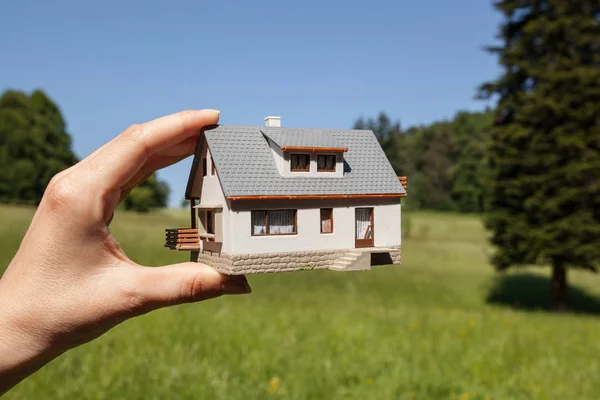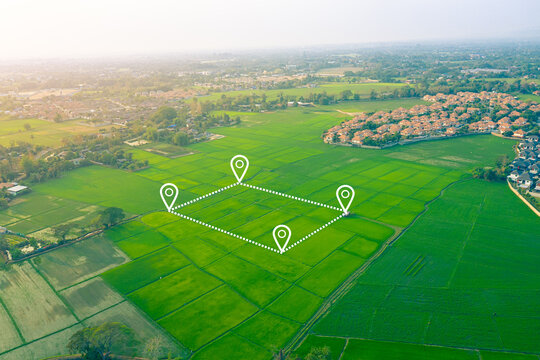
Transforming a plot of land into a construction site may look easy, but it involves complex steps and significant costs. To be successful, you will require vision, patience, a solid group and the main thing: financing. And that’s where land development loans come in.
In 2025, real estate developers, builders, and investors still rely on these loans to turn unused land into valuable property. Whether you’re planning to build a single-family home or a multi-lot subdivision, understanding how land development loans work is key to getting your project off the ground.
What Exactly Are Land Development Loans?
Land development loans are short-term financing tools designed to help borrowers prepare land for construction. As part of the process, teams clear and survey the land, install water and sewer lines, and pave the roads. The funding you get from these loans covers preparation at the start of the process but not actual construction itself.
Unlike raw land loans, they cannot be taken out to buy land without an immediate development plan. Instead, land development loans assume the borrower has a clear and actionable plan to make the land buildable—and fast.
Types of Land You Can Develop
The kind of land you’re working with will influence the loan terms and the lender’s risk assessment. So, here’s a quick breakdown:
- Raw Land: This is untouched, with no utilities or improvements. It’s the most affordable option but also the riskiest.
- Unimproved Land: This may have some basic access or utilities nearby but still needs major development.
- Improved Land: Already equipped with roads, water, and electricity, this type is ready (or almost ready) for construction.
Generally, the more developed the land, the lower the risk—and the better the loan terms you might get. However, many investors seek out raw land because it’s cheaper and offers more upside potential.
Who Uses Land Development Loans?
Land development loans are primarily used by:
- Real estate developers creating residential communities
- Commercial builders planning office parks or retail centers
- Custom home builders looking to build on their own schedule
- Land flippers preparing parcels for resale to builders
Even municipalities and non-profits sometimes use these loans for infrastructure upgrades or affordable housing projects.
What You Need to Qualify for Land Development Loans
To get a land development loan, borrowers need more than just a good idea. Lenders want reassurance that your project is realistic, well-planned, and profitable. So, here are the essentials you’ll typically need:
- Good Credit: A score of 680 or higher is often required.
- Substantial Down Payment: Many lenders ask for 20–30% of the project’s value upfront.
- Detailed Plans: Include site surveys, zoning approvals, engineering plans, environmental impact reports, and more.
- Budget & Timeline: A realistic development schedule and cost breakdown helps lenders feel confident in your execution.
- Experienced Team: Lenders prefer borrowers who’ve managed similar projects before.
- Exit Strategy: Whether it’s refinancing into a construction loan, selling lots, or building homes to sell, lenders want to know how you’ll repay the loan.
If you’re working with a private lender like Loan Locker, these requirements can sometimes be more flexible—especially if you have a strong plan and local market knowledge.
The Application Process for Land Development Loans
Generally, the application process for a loan includes these points.
- Select a lender. Make sure the lender you pick understands the market you are in. Loan Locker is located in Tampa, Florida and works with fast and flexible loan solutions for real estate projects.
- Submit your proposal. Financials, project plans, permits and site documentation are included in this information.
- Underwriting review. Your plan, your budget, your knowledge and the property’s value will be evaluated by the lender.
- Loan terms are offered. It covers the interest rate, amount of time the loan lasts, payment cycles and what collateral you should provide.
- Due diligence and closing. When all the checks are done, the legal documents are signed and the funds are given out, mostly in phases related to key project events.
Completing a loan with a private lender can happen in just days, while banks may take weeks.
Why Private Lenders Make Sense in 2025
Traditional banks are cautious about financing undeveloped land. Their approval timelines can be long, and their requirements strict. That’s why many developers are turning to private lenders.
Loan Locker, for example, provides direct lending backed by discretionary capital. This gives them the flexibility to make quick decisions without layers of bureaucracy. So, here’s what makes private lenders like Loan Locker a great choice:
- Speed: Projects often hinge on timing. Fast funding can mean the difference between winning and losing a deal.
- Local knowledge: Based in Tampa, Loan Locker knows Florida’s land use laws, permitting landscape, and real estate cycles.
- Custom terms: Rather than cookie-cutter lending, private lenders tailor loans to your specific project and timeline.
- Higher risk tolerance: Got a unique project? Private lenders are often more open to creative or non-standard developments.
Smart Tips for Developers in 2025
If you’re thinking about applying for a land development loan this year, here are some expert tips:
- Do your homework. Research local zoning, environmental laws, and market demand before buying land.
- Build your team early. Surveyors, civil engineers, architects, and contractors should be on board from the start.
- Start with a strong lender. A good lender, like Loan Locker, can provide not just funding but also valuable guidance.
- Plan for delays. Permitting and construction can face setbacks. Pad your timeline and budget.
- Stay flexible. If market conditions change, be ready to adjust your development or financing strategy.
Final Thoughts on Land Development Loans
In 2025, land development loans remain a powerful way to turn undeveloped property into valuable, build-ready lots.
If you know how these loans operate and choose a reputable private lender like Loan Locker, you’ll make better decisions. No matter if you’re creating a home for your family or planning a new subdivision, the right funding helps make your project even better.
So, want to start your journey? Contact Loan Locker who can help you quickly and tailor their service to your needs.
